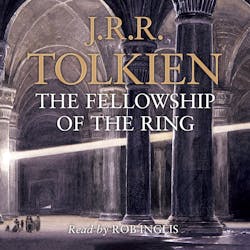The Ultimate Halloween Treat stands as a seminal anthology, embodying an unparalleled collection of literary works that have shaped and defined the gothic, supernatural, and horror genres. This compilation's range extends from the haunting psychology of fear to the darkest realms of the supernatural, exploring the nuances of terror through a mosaic of styles - from the atmospheric to the grotesque. It highlights the artistry of narrative tension and the existential underpinnings of dread, featuring a geography of haunted landscapes from the misty English moors to the labyrinthine streets of Victorian London, without exclusively attributing to a single author but celebrating the collective genius. The diversity in storytelling reveals the richly layered tapestry of fear that transcends cultural and temporal boundaries, offering a comprehensive exploration of the human fascination with the macabre. The contributing authors and editors, a constellation of esteemed writers from the 18th to the early 20th century, bring a breadth of literary prowess and philosophical depth to this collection. This assembly includes luminaries such as Poe, Stoker, and Austen, whose collective works contribute to crucial historical, cultural, and literary movements - from Romanticism and Victorianism to the early seeds of modern horror literature. Their varied backgrounds and insights enrich the anthology, offering a panoramic view of the evolution of horror and gothic literature, reflecting societal anxieties and the perennial exploration of the unknown. The Ultimate Halloween Treat is recommended for readers seeking to immerse themselves in the depth and diversity of horror and gothic literature. It provides a unique opportunity to experience a wide range of perspectives, styles, and themes within a single volume, fostering an educational journey through the history of the genre. This anthology is not just a collection of stories; it is an invitation to explore the complex relationship humanity has with fear, making it an essential volume for both scholars and enthusiasts of horror, gothic, and supernatural literature.
The Ultimate Halloween Treat
Authors:
- Wilhelm Hauff
- Theodor Storm
- Charles Dickens
- Mark Twain
- Harriet Beecher Stowe
- Adelbert von Chamisso
- Oscar Wilde
- Robert Louis Stevenson
- Edgar Allan Poe
- William Hope Hodgson
- Joseph Sheridan Le Fanu
- John Buchan
- George MacDonald
- Louis Tracy
- Percy Bysshe Shelley
- Bram Stoker
- Anatole France
- Charlotte Brontë
- Emily Brontë
- Jack London
- Henry James
- Théophile Gautier
- Arthur Conan Doyle
- Richard Le Gallienne
- Guy Boothby
- Jane Austen
- Algernon Blackwood
- Ralph Adams Cram
- Thomas De Quincey
- John Meade Falkner
- Guy de Maupassant
- Thomas Hardy
- William Archer
- William Harrison Ainsworth
- Daniel Defoe
- John Kendrick Bangs
- Cleveland Moffett
- Brander Matthews
- Marie Belloc Lowndes
- Sax Rohmer
- Horace Walpole
- Rudyard Kipling
- Lafcadio Hearn
- Ambrose Bierce
- Frederick Marryat
- Thomas Love Peacock
- Ellis Parker Butler
- Washington Irving
- David Lindsay
- Nathaniel Hawthorne
- Gaston Leroux
- Grant Allen
- Arthur Machen
- Wilkie Collins
- William Makepeace Thackeray
- Thomas Peckett Prest
- James Malcolm Rymer
- Fergus Hume
- Edward Bellamy
- Walter Hubbell
- S. Mukerji
- George Sylvester Viereck
- Marie Corelli
- Charles Brockden Brown
- Charlotte Perkins Gilman
- Leopold Kompert
- Richard Marsh
- Chester Bailey Fernald
- Florence Marryat
- Catherine Crowe
- Marjorie Bowen
- John William Polidori
- Vincent O'Sullivan
- H. G. Wells
- John R. Musick
- Robert W. Chambers
- W. W. Jacobs
- M. P. Shiel
- E. F. Benson
- Jerome K. Jerome
- M. R. James
- E. T. A. Hoffmann
- Eleanor M. Ingram
- George W. M. Reynolds
- Fred M. White
- H. P. Lovecraft
- Robert E. Howard
- Edith Nesbit
- Sabine Baring-Gould
- William Thomas Beckford
- Francis Marion Crawford
- Mary Elizabeth Braddon
- Mary Louisa Molesworth
- Mary E. Wilkins Freeman
- Nikolai Gogol
- J. Meade Falkner
- Mary Shelley
- Elizabeth Gaskell
- Gertrude Atherton
- Edward Bulwer-Lytton
- Frank R. Stockton
- A. T. Quiller-Couch
- Olivia Howard Dunbar
- Ann Radcliffe
- Louisa M. Alcott
- Thomas Mayne Reid
- Amelia B. Edwards
- Leonard Kip
- Matthew Gregory Lewis
- Charles Maturin
- Fitz-James O'Brien
- Katherine Rickford
- Bithia Mary Croker
- Catherine L. Pirkis
- Émile Erckmann
- Alexandre Chatrian
- Pedro De Alarçon
- J. K. Huysmans
- Pliny the Younger
- Helena Blavatsky
- Villiers l'Isle de Adam
- William F. Harvey
- Fiona Macleod
- William T. Stead
- Gambier Bolton
- Andrew Jackson Davis
- Nizida
- Walter F. Prince
- H. H. Munro
- Mrs. Margaret Oliphant
Format:
Duration:
- 68 pages
Language:
English
Categories:
Others have also read
Skip the listThe Fellowship of the Ring
J. R. R. Tolkien
audiobook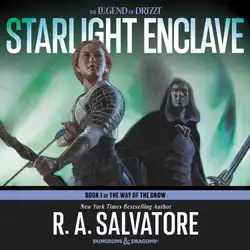
Starlight Enclave : A Novel
R. A. Salvatore
audiobook
Die Erben der Nacht 1 - Nosferas: Eine mitreißende Vampir-Saga
Ulrike Schweikert
audiobook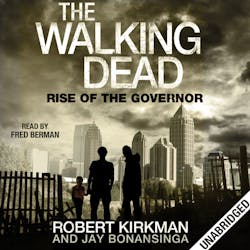
Rise of the Governor
Jay Bonansinga, Robert Kirkman
audiobook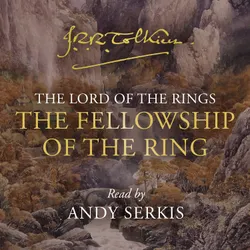
The Fellowship of the Ring
J. R. R. Tolkien
audiobook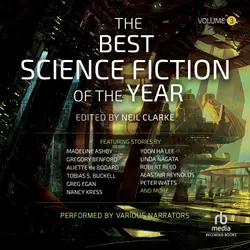
The Best Science Fiction of the Year, Volume 3
audiobook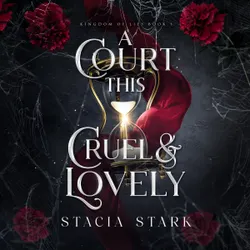
A Court This Cruel and Lovely
Stacia Stark
audiobook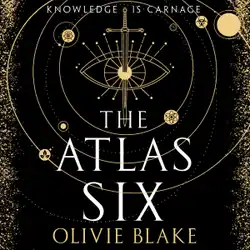
The Atlas Six : No.1 Bestseller and TikTok Sensation
Olivie Blake
audiobook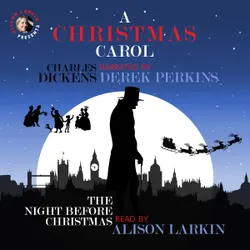
A Christmas Carol and The Night Before Christmas - With Commentary from Alison Larkin (Unabridged)
Charles Dickens, Clement Clarke Moore
audiobook
A Conspiracy of Truths
Alexandra Rowland
audiobookbook
Masters of Death : A Witty, Spellbinding Fantasy From the Author of The Atlas Six
Olivie Blake
audiobook
The Only Child
Andrew Pyper
book
- 2345 books
Charles Dickens
Charles Dickens was born in 1812 and grew up in poverty. This experience influenced ‘Oliver Twist’, the second of his fourteen major novels, which first appeared in 1837. When he died in 1870, he was buried in Poets’ Corner in Westminster Abbey as an indication of his huge popularity as a novelist, which endures to this day.
Read more - 1735 books
Mark Twain
Mark Twain, born Samuel Langhorne Clemens in 1835, left school at age 12. His career encompassed such varied occupations as printer, Mississippi riverboat pilot, journalist, travel writer, and publisher, which furnished him with a wide knowledge of humanity and the perfect grasp of local customs and speech manifested in his writing. It wasn't until The Adventures of Huckleberry Finn (1885), that he was recognized by the literary establishment as one of the greatest writers America would ever produce. Toward the end of his life, plagued by personal tragedy and financial failure, Twain grew more and more cynical and pessimistic. Though his fame continued to widen--Yale and Oxford awarded him honorary degrees--he spent his last years in gloom and desperation, but he lives on in American letters as "the Lincoln of our literature."
Read more - 301 books
Harriet Beecher Stowe
Harriet Beecher Stowe (1811–1896) was an American abolitionist and author of more than 20 books, including novels, three travel memoirs, and collections of articles and letters. Her novel Uncle Tom's Cabin (1852) was a realistic account of life for African-Americans under slavery; it reached millions and became influential in the United States and United Kingdom.
Read more - 1180 books
Oscar Wilde
Oscar Fingal O'Flahertie Wills Wilde was born on the 16th October 1854 and died on the 30th November 1900. He was an Irish playwright, poet, and author of numerous short stories and one novel. Known for his biting wit, he became one of the most successful playwrights of the late Victorian era in London, and one of the greatest celebrities of his day. Several of his plays continue to be widely performed, especially The Importance of Being Earnest.
Read more - 945 books
Robert Louis Stevenson
Robert Lewis Balfour Stevenson was born on 13 November 1850, changing his second name to ‘Louis’ at the age of eighteen. He has always been loved and admired by countless readers and critics for ‘the excitement, the fierce joy, the delight in strangeness, the pleasure in deep and dark adventures’ found in his classic stories and, without doubt, he created some of the most horribly unforgettable characters in literature and, above all, Mr. Edward Hyde.
Read more - 1636 books
Edgar Allan Poe
Edgar Allan Poe (1809-1849) was an American writer, poet, and critic. Best known for his macabre prose work, including the short story “The Tell-Tale Heart,” his writing has influenced literature in the United States and around the world.
Read more - 82 books
Percy Bysshe Shelley
Percy Bysshe Shelley (1792–1822) was one of the major English Romantic poets and is regarded by critics as one of the finest lyric poets in the English language.
Read more - 638 books
Bram Stoker
Bram Stoker was born November 8, 1847, in Dublin, Ireland. Stoker was a sickly child who was frequently bedridden; his mother entertained him by telling frightening stories and fables during his bouts of illness. Stoker studied math at Trinity College Dublin, graduating in 1867. He worked as a civil servant, freelance journalist, drama critic, editor and, most notably, as manager of the Lyceum Theatre. Although best known for Dracula, Stoker wrote eighteen other books, including Under the Sunset, The Snake’s Pass, The Jewel of Seven Stars, The Lady of the Shroud, and The Lair of the White Worm. He died in 1912 at the age of sixty-four.
Read more - 655 books
Charlotte Brontë
Charlotte Brontë (1816–1855) was an English novelist and poet, the eldest of the three Brontë sister authors. Her novels are considered masterpieces of English literature – the most famous of which is Jane Eyre.
Read more - 528 books
Emily Brontë
Emily Brontë (1818–1848) was an English novelist and poet, best remembered for her only novel, Wuthering Heights. The novel’s violence and passion shocked the Victorian public and led to the belief that it was written by a man. Although Emily died young (at the age of 30), her sole complete work is now considered a masterpiece of English literature.
Read more - 1469 books
Jack London
Jack London (1876–1916) was a prolific American novelist and short story writer. His most notable works include White Fang, The Call of the Wild, and The Sea-Wolf. He was born in San Francisco, California.
Read more - 937 books
Henry James
Henry James (1843–1916) was an American writer, highly regarded as one of the key proponents of literary realism, as well as for his contributions to literary criticism. His writing centres on the clash and overlap between Europe and America, and is regarded as his most notable work.
Read more - 1712 books
Arthur Conan Doyle
Arthur Conan Doyle was a British writer and physician. He is the creator of the Sherlock Holmes character, writing his debut appearance in A Study in Scarlet. Doyle wrote notable books in the fantasy and science fiction genres, as well as plays, romances, poetry, non-fiction, and historical novels.
Read more - 1254 books
Jane Austen
Jane Austen (1775-1817) was an English novelist known primarily for her six major novels—Sense and Sensibility, Pride and Prejudice, Mansfield Park, Emma, Northanger Abbey, and Persuasion—which observe and critique the British gentry of the late eighteenth century. Her mastery of wit, irony, and social commentary made her a beloved and acclaimed author in her lifetime, a distinction she still enjoys today around the world.
Read more - 623 books
Thomas Hardy
Thomas Hardy was born in 1840 in Dorchester, Dorset. He enrolled as a student in King’s College, London, but never felt at ease there, seeing himself as socially inferior. This preoccupation with society, particularly the declining rural society, featured heavily in Hardy’s novels, with many of his stories set in the fictional county of Wessex. Since his death in 1928, Hardy has been recognised as a significant poet, influencing The Movement poets in the 1950s and 1960s.
Read more - 719 books
Daniel Defoe
Daniel Defoe was born at the beginning of a period of history known as the English Restoration, so-named because it was when King Charles II restored the monarchy to England following the English Civil War and the brief dictatorship of Oliver Cromwell. Defoe’s contemporaries included Isaac Newton and Samuel Pepys.
Read more - 1005 books
Rudyard Kipling
Rudyard Kipling was born in Bombay, India, in 1865. One of the most revered writers in recent history, many of his works are deemed classic literature. To this day, he maintains an avid following and reputation as one of the greatest storytellers of the past two centuries. In 1907, he received the Nobel Prize for Literature. He died in 1936, but his stories live on—even eighty years after his passing.
Read more - 643 books
Washington Irving
Washington Irving was an American author, essayist, biographer, historian, and diplomat of the early 19th century.
Read more - 893 books
Nathaniel Hawthorne
Nathaniel Hawthorne (1804–1864) was an American novelist, short-story writer, and biographer. His work centres on his New England home and often features moral allegories with Puritan inspiration, with themes revolving around inherent good and evil. His fiction works are considered part of the Romantic movement and, more specifically, Dark romanticism.
Read more - 429 books
Gaston Leroux
Gaston Leroux was a French journalist and playwright. Born in Paris in 1868, he abandoned a law career to become a court reporter and theater critic; as an international correspondent, he witnessed and covered the 1905 Russian Revolution. Two years later, Leroux left journalism to focus on writing fiction. He authored dozens of novels and short stories, and is considered one of the preeminent French writers of detective fiction. His most famous work, The Phantom of the Opera, was originally serialized in 1909 and 1910. He died in 1927.
Read more - 753 books
Wilkie Collins
Wilkie Collins (1824-1889) began his literary career writing articles and short stories for Dickens' periodicals. He published a biography of his father and a number of plays, but his reputation rests on his novels. Collins is well known for his mystery, suspense, and crime writings. He is best known for his novels in the emerging genres of Sensation and Detective fiction.
Read more - 1000 books
H. G. Wells
English author H. G. Wells is best known for his work in the science fiction genre. He was also a prolific writer in many other genres, including contemporary novels, history, politics, and social commentary, even writing textbooks and rules for war games. He was born on September 21, 1866, and died on August 13, 1946.
Read more - 185 books
Robert W. Chambers
Robert W. Chambers (1865-1933) was an American writer of novels and short stories in the genres of weird fiction, horror, science-fiction, fantasy, and romantic fiction. He is best known for The King in Yellow, a short story collection published in 1895.
Read more - 148 books
Jerome K. Jerome
Jerome Klapka Jerome (1859–1927) was an English writer, essayist and humorist. His most famous work is the comic travelogue Three Men in a Boat.
Read more - 556 books
H. P. Lovecraft
H. P. Lovecraft was an American author of horror, fantasy, and science fiction, especially the subgenre known as weird fiction.
Read more - 579 books
Mary Shelley
Mary Shelley (1797–1851) was born to well-known parents: author and feminist Mary Wollstonecraft and philosopher William Godwin. When Mary was sixteen, she met the young poet Percy Bysshe Shelley, a devotee of her father’s teachings. In 1816, the two of them travelled to Geneva to stay with Lord Byron. One evening, while they shared ghost stories, Lord Byron proposed that they each write a ghost story of their own. Frankenstein was Mary’s contribution. Other works of hers include Mathilda, The Last Man, and The Fortunes of Perkin Warbeck.
Read more - 291 books
Elizabeth Gaskell
Elizabeth Gaskell (1810–1865) was a British novelist and short-story writer. Her works were Victorian social histories across many strata of society. Her most famous works include Mary Barton, Cranford, North and South, and Wives and Daughters.
Read more

